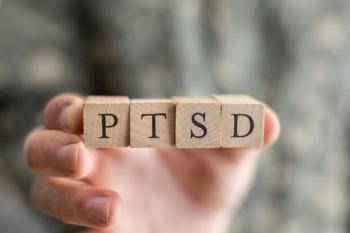
PTSD In Review: Treatment Insights
Key Takeaways
- Complex PTSD is not recognized in DSM-5, but separate classification may benefit patients due to its distinct presentation.
- PTSD diagnosis requires nuanced understanding, as symptoms often overlap with other psychiatric disorders, complicating discernment.
Stay informed on PTSD treatment insights, including complex PTSD recognition, diagnostic nuances, and the link between migraines and trauma.
On Friday, July 18, 2025, the FDA Advisory Committee voted against recommending brexpiprazole plus sertraline for the treatment of posttraumatic stress disorder (PTSD). We gathered our most recent insights on treating this disorder so you can stay up to date on PTSD.
Complex PTSD is not recognized as its own disorder in the DSM-5, and patients may benefit from a separate recognition as it has different presentation. John Miller, MD recommends trauma screening and clinician education to properly care for patients who may have complex PTSD and other issues stemming from it. PTSD can be found in various iterations of the DSM: it was introduced in DSM-III and was categorized as an anxiety disorder but has since been recategorized under trauma and stress related disorders in the latest edition. The push to include PTSD as an item in the DSM was influenced by growing awareness of post-war trauma in Vietnam War veterans, along with the women’s rights movement of the 1970s.
Diagnosing patients with PTSD can be quite nuanced. Shannon Peterson LeMaster, MD, walks through the 5 diagnostic criteria in the DSM-5, pointing out symptoms may present themselves in reverse order from the diagnostic listing. She emphasizes the need for screening and patient connection, as well as focuses on screening for PTSD in a variety of clinical situations because of the disorder’s high rate of comorbidity. Symptoms often overlap with other psychiatric disorders as well, making it harder to discern.
Posttraumatic growth (PTG) and resiliency are key factors for patients dealing with PTSD. Individuals can focus on their capacity to overcome adversity and work on positive psychological changes after trauma. Clinicians reminding patients with PTSD that they have the ability to grow and make positive change can be beneficial to recovery. PTG strategies encourage survivors to be aware of their cognition of the world and their view of themselves.
A study in 2021 suggested that specific genes and signaling pathways are implicated in both PTSD and migraine, potentially offering insight into why these occur together often. The study observed twins with PTSD and twins with migraine, and each pair was tested for methylation at genetic loci which are thought to overlap between PTSD and migraine. Genes DAPK2 and TM6SF2 were the 2 top overlapping genes between the disorders. Authors of the study suggested that epigenetic changes in response to stress can have an effect on stress phenotypes.
The 5 symptoms of PTSD defined in the DSM-5 are exposure to trauma, intrusive symptoms, avoidance, negative alterations in thought and mood, and changes in arousal. A notable feature of PTSD is also how patients relate their symptoms to feelings of helplessness, weakness, or lack of control, leading to strong negative emotion. Interventions for patients are most effective when related to reframing and reclaiming negative appraisals, disorganized recall, flashbacks, unhelpful responses, and safety behaviors.
Best practices for treating PTSD and comorbid psychosis include early and thorough assessment and trauma informed care. Providers can implement care programs that are sensitive to trauma and patients with PTSD. Clinicians should develop treatment plans that address the patient’s immediate individuals needs and move towards reducing distress. Traumatic past experiences are common in individuals who report experiencing psychosis symptoms. These symptoms of psychosis may also be functioning in the context of PTSD.
Newsletter
Receive trusted psychiatric news, expert analysis, and clinical insights — subscribe today to support your practice and your patients.







